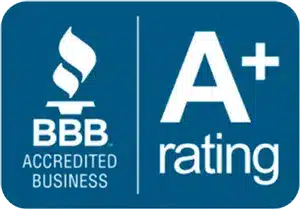Oklahoma ranks 7th in the list of 10 states with the highest STD rates. Whether you are sexually active or plan to be, it’s time to get up and get treated for STDs. Let Equality Health diagnose you and treat you on time. We have all the resources for STD treatment in Oklahoma City in our well-equipped STD treatment clinics.
Understanding STI Testing and Treatment in Oklahoma City
We encourage you to always be positive, respectful, and mindful of your sexual health. That’s because you can always come in contact with disease and infection, even when you are careful. STI’s are serious health conditions where a sexually transmitted infection or disease develops after sex or other sexual acts. The most common symptoms of STI’s are–itching, burning around your genitals or when you urinate, discharge, sores/bumps near your genitals or mouth, etc. Even if you don’t have symptoms, you can still be carrying a STI, and will need the correct STI treatment.
Here at Equality Health in OKC, we treat various types of STIs with individualized STD treatment plans because we know STIs can hurt you in so many ways–mental & physical!
Before starting, we assess the patient’s health status and risk factors. So if you are searching for ‘STD or STI testing treatment near me,’ we, Equality Health, are here in Oklahoma City to provide you with the following:
- Confidential STD treatment, testing, and diagnosis
- Comprehensive treatment for various STIs
- Personalized care and prevention strategies (PrEP)
- Education and guidance on safe sexual practices
- Medication and prescription management
- Follow-up care and support
Antimicrobial Treatment for Bacterial STIs
The 3 most common bacterial STDs in the OKC metro area are Chlamydia, Gonorrhea, and Syphilis. So, Equality Health specializes in the STD treatments of these common bacterial STIs and can get you the antibiotics you need to resolve these infections.
We cannot overemphasize the significance of completing the full course of antibiotics. If you fail to complete the treatment for STDs in any way it can give bacteria a chance to develop resistance against medications and may not completely resolve the infection.
That’s why our licensed medical professionals in our STD treatment center educate patients about STI treatment with the appropriate antibiotics and their proper usage, all to ensure your speedy recovery!
Antiretroviral Treatment for Viral STIs
Equality Health also specializes in treating viral STIs such as HIV (Human Immunodeficiency Virus).
- HIV Treatment: HIV can be a devastating disease; if not managed properly. We provide highly specialized HIV management services, including ART (Antiretroviral therapy), regular monitoring of viral load and CD4 counts, and offer consultations for other HIV-related problems.
We will always discuss the risks of HIV antiretroviral therapy with you before beginning treatment. HIV antiretroviral therapy, like any medication, can cause unwanted side effects.
Our long-term chronic viral STI management program includes regular checkups and counseling sessions for medication adherence and healthy lifestyle choices. So, Equality Health is here to give you a higher quality of life and decrease the risk of STI transmission.
If your STI test results come positive we strongly recommend getting treatment to avoid the risks of untreated STDs.
Follow-up Care and STI Testing
Equality Health strives to provide personalized support and treatment for STIs in Oklahoma City. We recommend individualized timelines for follow-up visits and laboratory testing to ensure treatment success and monitor for reinfection.
- Post-treatment Follow-up: This can depend on the infection, but our healthcare professionals will educate you and get you scheduled for follow-up, if necessary.
- Retesting: We advise patients to undergo repeat testing if symptoms do not resolve or they remain at risk for contracting STIs.
- Routine Testing: For individuals who are sexually active or have multiple partners, we encourage regular testing every 3 to 6 months.
Prevention Counseling and Education
At Equality Health, we put a lot of emphasis on prevention counseling and education. Our skilled professionals are always one step ahead for personalized discussion, addressing your concerns, and sharing STI risk reduction strategies to keep you and your partner(s) safe.
Our guidance on various risk reduction strategies includes:
- Use Condoms: Condoms are a latex and polyurethane barrier that acts as a protection to decrease the chances of contracting/transmitting most STDs. We provide condoms for free in our office to any person wanting or needing them.
- Get Vaccinated: There are STD vaccines available for hepatitis B that can help reduce your risk of contracting these viruses.
- Talk with Your Sex Partner(s): it might be an uncomfortable conversation, but protecting your health starts with you!
- Talk About Your Options: We also give you an environment to openly discuss your sexual history, STI testing, and safer sex practices for a healthier sex life.
Get Multidisciplinary Care for STDs in Oklahoma City
At Equality Health, our healthcare professionals provide a well-rounded approach to give you multidisciplinary care in managing common STIs. We work collaboratively and responsively to ensure that our patients receive 100% effective and up-to-date care for STD treatment in OKC, and we offer confidential STD treatment.
If our patients need any advanced diagnostics or complex management for their STIs, we have a network of STD care specialists near you to refer you. Our comprehensive care doesn’t end with just medical treatment. Our STD treatment clinic also offers HIV testing and PrEP prevention for HIV, Hepatitis C testing, and Hepatitis C treatment in Oklahoma City.
Call us at (405) 761-2762 or schedule an appointment with us for STI treatment in OKC. Remember–sexual health is a part of your overall health; it is just as important to learn more with an STD care specialist.
Frequently Asked Questions (FAQs)
If you’re looking for a reliable STD treatment in OKC, Equality Health is the place to go. We start our treatment process with an STD testing procedure to understand the type of STD you have. Then, our providers will suggest antimicrobial treatment for bacterial STDs and antiviral treatment for viral STDs. We also provide follow-up services where you can openly voice your concerns and talk about your progress with the treatment.
Yes! In most cases, your insurance plan will cover the treatment for STDs like Syphilis, HIV, Chlamydia, and more. It falls under the preventive health benefits. However, the extent of coverage your insurance provides depends on the insurance company and your insurance plan. For more information about the coverage of STD treatment, speak to your insurance provider.
The cost mostly depends on the type of STD you have and what kind of treatment you require. Insurance will cover most medications, and there are coupons readily available online for most antibiotics to reduce costs if you are uninsured.
Unfortunately not! It is not possible to cure all STDs. You can cure some STDs like syphilis, gonorrhea, chlamydia, and trichomoniasis with treatment. But there are other STDs, like HIV, that cannot be cured. For the incurable ones, you can manage them with medication and reduce the risks. People with these STDs can still live normal lives by taking their meds as recommended.
If your partner is diagnosed with an STD, you will also need to be tested and possibly treated for the STD. You should also abstain from sexual activity until all parties have been tested and treated so the infection is not passed back and forth.



